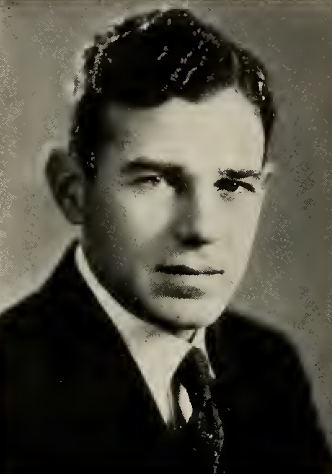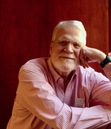Mark Scott Smith's Blog: Enemy in the Mirror, page 115
April 11, 2014
America Journalist Found Guilty as Japanese Agent – 1942

Ralph Townsend; Wikimedia Commons
Ralph Townsend worked as a journalist in San Francisco and taught English at Columbia University before joining the U.S. Foreign Service in 1930. His controversial 1933 book Ways That Are Dark: The Truth About China was critical of Chinese society and supportive of Japan’s policies in the region. His 1936 book Asia Answers, which condemned American “pro-Communist liberals,” described Japan as a bulwark of capitalism in Asia.
After returning to the USA from a trip to Japan in 1937, Townsend was vociferous in his attempts to promote American non-intervention in both Europe and Asia. In addition to lectures and radio addresses, he published pamphlets with titles such as The High Cost of Hate, America Has No Enemies In Asia, There Is No Halfway Neutrality and Seeking Foreign Trouble.
In 1940 Townsend became an active member of America First Committee and began writing for its unofficial voice, the isolationist magazine Scribner’s Commentator . After discovering he had received payments from the Japanese Committee on Trade and Information, the FBI arrested Townsend in January 1941. While admitting he accepted money from the Japanese as payment for the bulk sale of his pamphlets, Townsend denied being a Japanese agent and claimed he was a victim of political persecution. In June 1942 he was sentenced to 8 – 24 months in prison.
In July 1942, while still imprisoned, Townsend and 27 other Americans were charged under the Smith and Espionage Acts of participation in a Nazi conspiracy to publish seditious literature designed to undermine the morale of the U.S. military. These charges were felt to be dubious by many members of Congress and the indictments were delayed several times. When the third indictment was begun in January 1943, Townsend’s name was dropped from the list. After release from prison, no further action was taken against him.
The post America Journalist Found Guilty as Japanese Agent – 1942 appeared first on Enemy in the Mirror.
April 9, 2014
The Wind Rises – 風立ちぬ
This lovely, lyrical animated film by the Japanese manga artist and film director Hayao Miyazaki tells the story of a boy fascinated by flight and aircraft design who grows up to conceive the famous Mitsubishi A6M “Zero” fighter. Not a war story, rather the story of passion, romance and loss, the Wind Rises captures the grace (and tragedy) of Imperial Japan in soft pastels, blowing wind and falling blossoms.
The post The Wind Rises – 風立ちぬ appeared first on Enemy in the Mirror.
April 7, 2014
Lübeck Martyrs 1942

In 1934 Karl Friedrich Stellbrink was appointed to the Luther Church in Lübeck. Although an early member of the National Socialist Party (NSDAP), he became disenchanted with the party when it began to profess anti-Church attitudes. In 1936 he was expelled from the NSDAP and by the beginning of WWII he was a vocal opponent of National Socialism. In 1941 he developed an ecumenical relationship with Johannes Prassek and Hermann Lange, Catholic priests from the Church of the Sacred Heart of Jesus in Lübeck. Together, the protestant clergyman and Catholic priests led critical discussions with young Christians regarding the Nazi regime and the war. Stellbrink and the two priests were arrested in the spring of 1942 and sentenced to death by the Volksgerichtshof (People’s Court) in the “Lübeck Christians Martyr’s’ Trial” and executed in Hamburg in November 1943.
The post Lübeck Martyrs 1942 appeared first on Enemy in the Mirror.
April 4, 2014
America’s Teenager Archie -1942
The fictional “Riverdale” teenagers Archie, Betty, Veronica, Reggie and Jughead, reportedly based on real people John L. Goldwater met in his travels through the Midwest, who debuted in the winter of 1942, are still being read today.
The post America’s Teenager Archie -1942 appeared first on Enemy in the Mirror.
April 2, 2014
Rabaul – Japan’s Fortress in the Solomons

Rabaul New Britain; Wikimedia Commons
After Germany’s defeat in WWI, Australia occupied New Guinea with Rabaul as its administrative capitol. In January 1942, intending to separate Australia from U.S. forces by occupying New Guinea and the Solomon Islands, Japan seized Rabaul and transformed into a mighty military fortress. Miles of tunnels were dug for shelter from air attacks and barracks and support facilities were constructed to accommodate up to 110,000 Japanese troops by 1943. Almost impregnable, the Allies chose to cut the base off from its supplies (Rings around Rabaul) rather than directly attack it. Rabaul remained in Japanese control until the end of the war.
The post Rabaul – Japan’s Fortress in the Solomons appeared first on Enemy in the Mirror.
March 31, 2014
WWII Helmets
March 28, 2014
WWII Jitterbugging
The Lindy Hop (named perhaps after Charles Lindbergh’s 1927 cross-Atlantic flight) evolved with swing music in the late 1920s.
Popularized by American servicemen in WWII, the Lindy Hop was commonly known as the Jitterbug. It could be danced wild and fast, often with spectacular airborne steps (as shown in this clip from the 1941 movie Hellzapoppin), or it could be slow and sexy.
The post WWII Jitterbugging appeared first on Enemy in the Mirror.
March 26, 2014
Imperial Japanese Navy – Color Footage 1942
The Imperial Japanese Navy was was the third largest navy in the world at the start of WWII.
During the first years of the war the Imperial Japanese Navy dominated the Western Pacific.
The post Imperial Japanese Navy – Color Footage 1942 appeared first on Enemy in the Mirror.
March 24, 2014
German Nuclear Weapon Development -1942

Werner Heisenberg; Wikimedia Commons
In 1927, the German theoretical physicist Werner Karl Heisenberg published his famous paper regarding the uncertainty principle .
In 1932 he was awarded the Nobel Prize for the his role in creating the field of quantum mechanics.
In 1939, shortly after the discovery of nuclear fission, Heisenberg became a principal scientist in the German nuclear energy project known as the Uranverein (Uranium Club). In February 1942, he proposed acquiring energy from nuclear fission to Reich officials. Subsequently, the Uranium Club became the Reich Research Council with emphasis on the development of nuclear weapons.
Heisenberg maintained that a nuclear bomb could be built by 1945 if significant funding and priority were given to the project. In June 1942, Hitler reorganized the Reich Research Council under Reich Marshall Hermann Göring as the Reich Ministry for Armament and Ammunition.
The post German Nuclear Weapon Development -1942 appeared first on Enemy in the Mirror.
March 21, 2014
Why We Fight: Prelude to War- 1942
This 1942 U.S. propaganda film attempts to show the military and public why the USA became engaged in a world war against the Axis powers.
The post Why We Fight: Prelude to War- 1942 appeared first on Enemy in the Mirror.
Enemy in the Mirror
I began by posting events around the turn This website www.enemyinmirror.com explores the consciousness, diplomacy, emotion, prejudice and psychology of 20th Century America and her enemies in wartime.
I began by posting events around the turn of the 20th century as I was researching my first novel about the Pacific War. I continued through WWII for my second novel about the Battle of the Atlantic. Now I am beginning to look at the Cold War as I gather information for my next novel about the Korean War. ...more
- Mark Scott Smith's profile
- 7 followers





